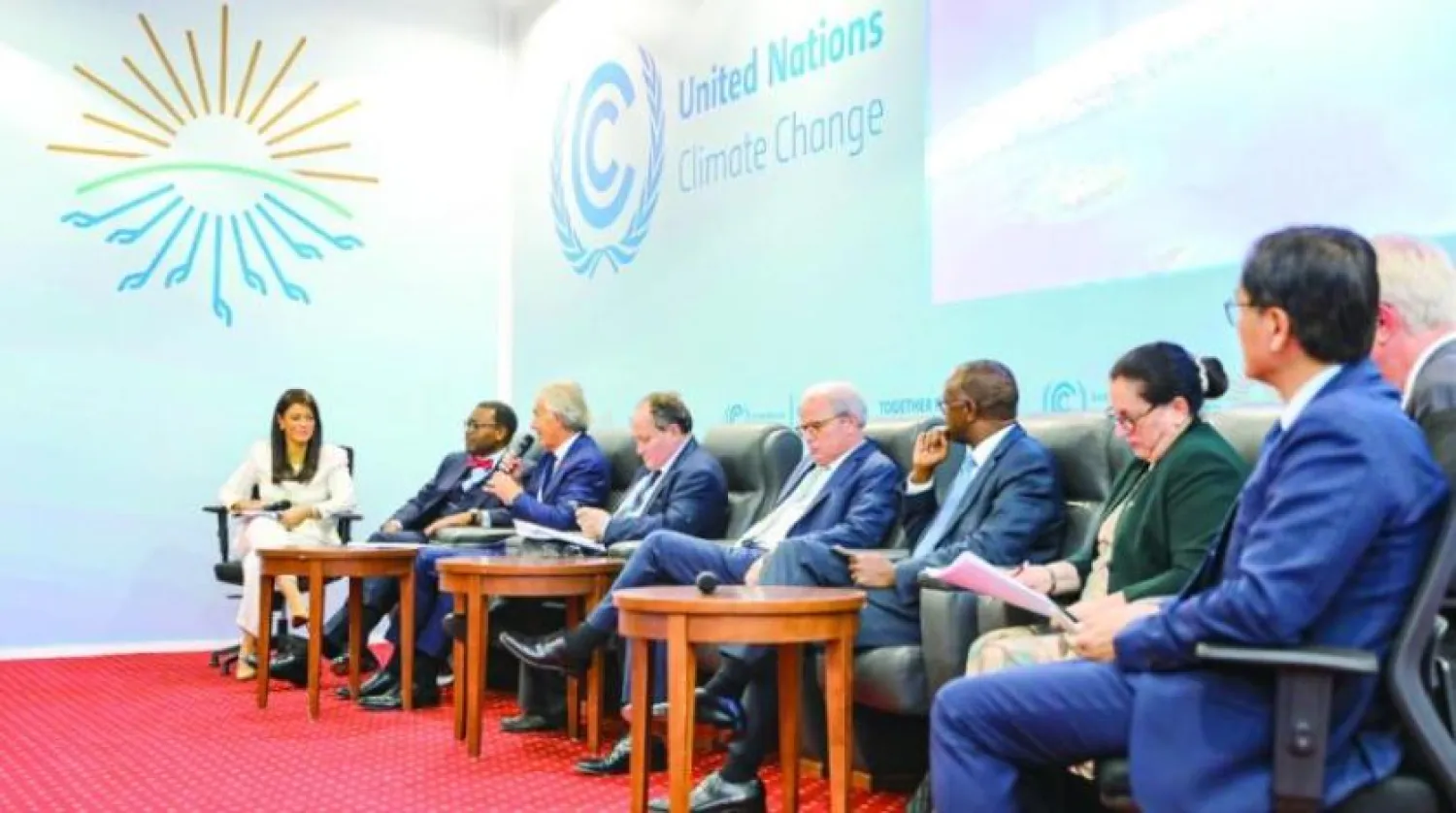The 2022 UN Climate Change Conference (COP27) witnessed the launch of the Sharm el-Sheikh Guide to Fair Finance – an international framework that seeks to address challenges facing developing countries and emerging economies, especially African states, and help them obtain financing to achieve their ambitions in the climate agenda.
The Sharm el-Sheikh Guide to Fair Financing is aligned with the objectives of the Egyptian presidency to strengthen comprehensive partnerships to achieve a flexible and sustainable recovery, facilitate access to equitable financing, and support developing countries in their transition towards a green economy.
During a high-level event, Egypt’s Minister of International Cooperation, Dr. Rania Al-Mashat, introduced the guide, which constitutes one of the initiatives launched by the host country during the COP27 summit.
She noted that the preparation of the guide was based on a participatory approach, and consultations with more than 100 relevant parties, representatives of governments, multilateral and bilateral development partners, the private sector, commercial and investment banks, climate finance funds, think tanks and non-profit organizations.
The minister added that the Guide to Fair Financing was based on 12 key principles to stimulate climate finance. These principles serve as a guiding framework for encouraging partnerships between all relevant parties, particularly the public and private sectors, to drive the transition towards a sustainable green economy.
Those include, support for developing countries’ right to development and industrialization through equitable pathways within the framework of the Paris Climate Agreement; ensure alignment between global climate action goals and national development goals; encourage governments’ efforts to create an enabling environment by providing funding and raising technical and institutional competencies; and guarantee the right of all states to develop under the principle of common but differentiated responsibilities (CBDR).
Other key principles include, establishing an effective governance system and regulations for green markets, and activating an efficient monitoring and evaluation system; ensuring harmonization of climate finance across sectors; strengthening transparency and accountability systems through the development of common standards for climate finance; and enhancing coordination among all parties involved in financing, which contributes to the launching of investment opportunities in developing countries.
“Climate change represents an increasing threat to our lives, livelihoods and the stability of economic and financial systems. Therefore, investing in resilient societies, renewable energy and green technology is necessary and urgent, and this requires huge amounts of funding, so we need new ideas to mobilize capital and build greener economies,” said IMF Managing Director Kristalina Georgieva on the sidelines of the event.









